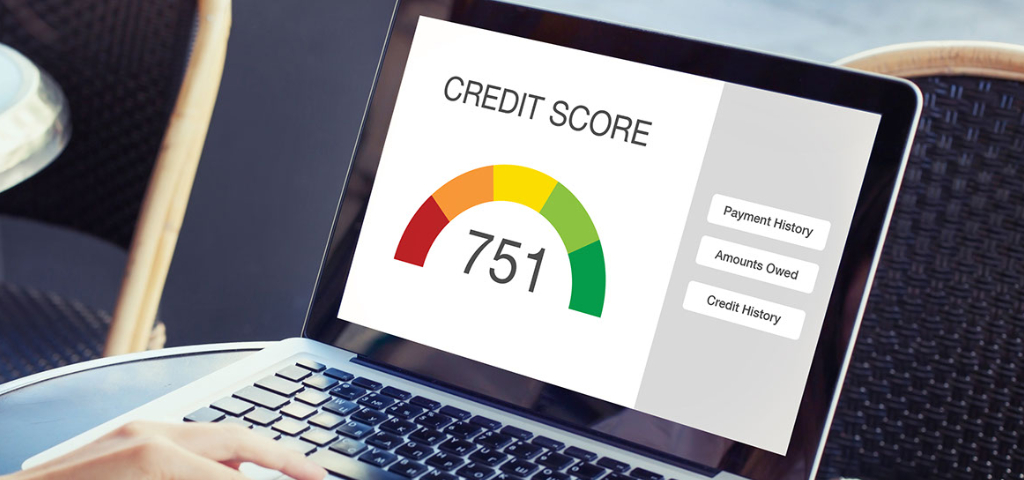When it comes to assessing your financial well-being and creditworthiness, credit scores and credit reports hold vital importance. Although they may appear similar at first glance, understanding the disparities between them and acknowledging their respective significance is essential. In this article, we will explore the primary variances between credit scores and credit reports, shedding light on why both are crucial for effectively managing your financial health.
Understanding Credit Reports: A Comprehensive Insight
A credit report serves as a comprehensive consolidation of your financial history, drawing information from various sources. In the United States, three prominent credit bureaus—Equifax, Experian, and TransUnion—compile and furnish credit reports to lenders, employers, insurers, and other relevant entities. These reports encompass four primary categories of information:
Identifying information: This section provides personal details such as your name, address, social security number, and date of birth.
Credit accounts: It presents detailed information about your credit accounts, including mortgages, loans, credit cards, and charge cards. This section outlines your payment history, outstanding balances, and credit limits.
Credit inquiries: This category lists all instances where someone requested access to your credit report, typically when you applied for credit.
Public records: If you have any bankruptcies, tax liens, or legal judgments, they will be reflected in this section.
It is important to note that each credit bureau may have slight variations in the information they provide. Hence, reviewing reports from all three bureaus is crucial. While discrepancies can arise due to reporting errors, it is essential to ensure the accuracy of your credit reports to prevent any adverse impact on your creditworthiness.
You have the right to obtain free copies of your credit reports once every 12 months from the government-sanctioned website AnnualCreditReport.com. Beware of unofficial websites or services that may charge fees or mislead you. Always verify the authenticity of the website by carefully checking the web address and typing it directly into your browser.
Understanding Credit Scores: A Snapshot of Creditworthiness
In contrast to a detailed credit report, a credit score represents a numerical rating that provides a concise summary of your creditworthiness. Lenders often rely on credit scores to assess the level of risk involved in extending credit to you. While multiple scoring models exist, the widely recognized and utilized FICO score is provided by the Fair Isaac Corporation.
Credit scores typically range from 300 to 850, with higher scores indicating lower credit risk. The calculation of a credit score takes into account five weighted categories:
- Payment history (35%): This category evaluates your past payment track record and whether you make payments on time.
- Amounts owed (30%): It assesses the total amount of debt you owe in relation to your available credit.
- Length of credit history (15%): This category considers the age of your credit accounts and the time since your last activity.
- Credit mix (10%): It analyzes the diversity of your credit accounts, including credit cards, loans, and mortgages.
- New credit (10%): This category takes into account the number of recent credit inquiries and newly opened accounts.
It’s essential to note that different lenders may utilize various scoring models, resulting in multiple credit scores for an individual.
Accessing Your Credit Scores While the Dodd-Frank Act grants you the right to view the credit scores used by creditors, obtaining them for free is not guaranteed. Some credit card companies and financial institutions offer complimentary credit scores, and services like Credit Karma can also provide them at no cost. However, caution should be exercised when dealing with websites or services that claim to offer “free” scores but may come with hidden fees or unfavorable conditions.
Calculating Credit Scores: Unraveling the Process
Credit scores are determined through the utilization of various factors and algorithms. While specific scoring models may differ, the FICO scoring model is widely recognized and employed. Here are the general components and their respective weightings considered in calculating a FICO credit score:
Payment History (35%): This factor holds the most significance in determining your credit score. It takes into account your payment behavior, including whether you make payments on time, have any late payments or delinquencies, and if there are any accounts in collections or public records such as bankruptcies or liens.
Amounts Owed (30%): This factor examines the amount of debt you owe in relation to your overall credit limits. It considers your credit utilization ratio, which is the percentage of available credit you are utilizing. Maintaining a low credit utilization ratio, generally below 30%, is beneficial for your credit score.
Length of Credit History (15%): This factor considers the age of your credit accounts. It takes into account the age of your oldest account, the average age of all your accounts, and the duration since you last used certain accounts. Typically, a longer credit history with responsible credit management has a positive impact on your score.
Credit Mix (10%): Possessing a diverse mix of credit accounts, such as credit cards, loans, and mortgages, can contribute positively to your credit score. This factor evaluates whether you have experience managing different types of credit.
New Credit (10%): Opening multiple new credit accounts within a short period or having numerous recent credit inquiries can slightly lower your credit score. This factor assesses how recently you have opened new accounts and the number of recent credit inquiries on your report.
Benefits of having a Good Credit Score and Credit Report:
- Lower interest rates on loans. Lenders use your credit score to determine the interest rate you will pay on loans, such as mortgages, car loans, and personal loans. A good credit score can help you qualify for lower interest rates, which can save you money in the long run.
- Easier approval for loans. Lenders are more likely to approve you for a loan if you have a good credit score. This is because a good credit score shows that you are a responsible borrower who is likely to repay your debts on time.
- Access to more credit. Lenders are more likely to offer you a higher credit limit if you have a good credit score. This means that you will have more borrowing power, which can be helpful if you need to finance a large purchase or emergency expense.
- Better rental rates. Landlords often use credit scores to screen potential tenants. A good credit score can help you qualify for a lower rent rate.
- Better insurance rates. Insurance companies use credit scores to determine your rates for car insurance, home insurance, and other types of insurance. A good credit score can help you qualify for lower insurance rates.
- Easier job approval. Some employers use credit scores to screen potential employees. A good credit score can help you make a positive impression on potential employers.
>Read Also: 17 Auto Insurance Hacks You Need to Know Now
Relationship Between Credit Scores and Credit Reports
While credit scores and credit reports serve distinct purposes, they are intertwined. Credit scores are derived from the information contained within credit reports. Lenders utilize both to assess an individual’s creditworthiness and make informed decisions regarding extending credit. Therefore, it is vital to maintain accurate and up-to-date information in your credit reports to ensure fair and accurate credit score evaluations.
Tips for Improving your Credit Score:
- Pay your bills on time. This is the most important factor in determining your credit score.
- Keep your credit utilization low. Your credit utilization is the amount of debt you have compared to your total available credit. Aim to keep your credit utilization below 30%.
- Lengthen your credit history. The longer your credit history, the better. Try to avoid closing old accounts, even if you no longer use them.
- Dispute any errors on your credit report. If you see any errors on your credit report, dispute them immediately.
>Read More: Tips to Maximize Your Corel Draw Productivity
Frequently Asked Questions: Credit Score vs. Credit Report
(1.) What is a credit score?
A credit score is a numerical representation of an individual’s creditworthiness, calculated based on information in their credit report. Lenders use credit scores to assess the risk of extending credit to a person.
(2.) What is a credit report?
A credit report is a detailed record of an individual’s credit history, including information about their borrowing and repayment activities. It is maintained by credit bureaus or credit reporting agencies.
3. How often are credit scores and credit reports updated?
Credit reports are regularly updated as new information becomes available, while credit scores may be updated on a monthly basis, depending on when lenders report information to credit bureaus.
4. Who calculates credit scores?
Credit scores are calculated by credit scoring models developed by different companies, such as FICO® Score and VantageScore
5. What factors affect credit scores?
Factors that influence credit scores include payment history, credit utilization, length of credit history, types of credit accounts, and recent credit inquiries.
6. How can I check my credit score and credit report?
You can access your credit report for free once a year from each of the three major credit bureaus at AnnualCreditReport.com. To check your credit score, you can use online services or credit monitoring platforms, and some credit card companies offer free credit score tracking.
7. Can checking my credit score or credit report negatively impact my credit?
No, checking your own credit score or credit report is considered a “soft inquiry” and does not negatively impact your credit. However, “hard inquiries” by lenders or creditors can have a minor negative impact.
8. How long do negative items stay on a credit report?
A: Negative items, such as late payments or bankruptcies, can stay on a credit report for a specific period, generally seven years for most negative information and up to ten years for bankruptcies.
9. Can I improve my credit score and credit report?
Yes, you can improve your credit score and credit report by making timely payments, reducing debt, maintaining a good credit mix, and avoiding excessive credit applications. Over time, positive credit behavior can help improve your creditworthiness.







